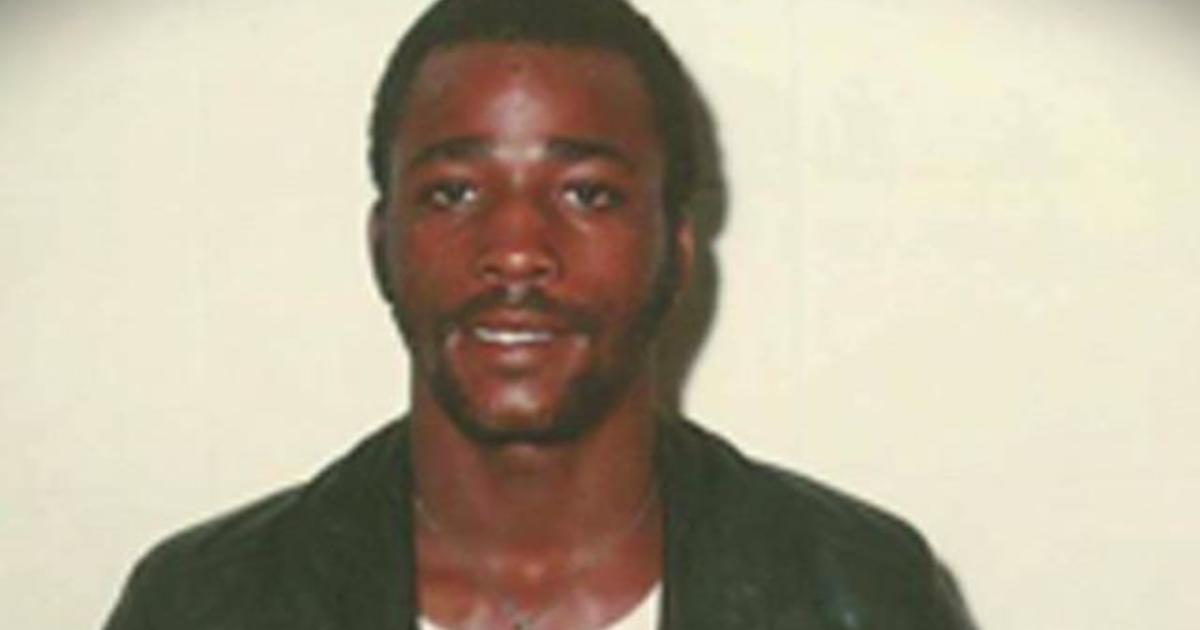
A federal appeals court is expected to rule any day on whether to overturn a 44-year-old rape conviction. In 1976, there were angry protests in Concord, North Carolina after the conviction of a young Black man, Ronnie Wallace Long, accused of raping a prominent White woman.
Now, lawyers for Long, who accuse investigators of lying about evidence, are trying to right what they say is a wrongful conviction.
Long, who is now 64 years old, told “48 Hours” correspondent Erin Moriarty that he never had a chance for a fair trial in what was back then a mostly segregated community.
“So now you tell me, you got a young Black man in 1976 in front of a White jury … for a sexual assault of a rich, wealthy, White female. I mean, what kind of justice is that?” Long said.
Long was 20 years old in 1976 when he was arrested in Concord for the rape of Sarah Bost, a 54-year-old widow.
“They got the wrong man,” said Jamie Lau, a supervising attorney with the Duke Law School Wrongful Convictions Clinic. “Ronnie Long is absolutely innocent of this crime.”
Lau said Long, who had been a talented high school athlete, was facing a minor trespassing charge when cops asked the victim to come to court that day.
“They dressed her in a disguise, brought her to the courtroom. She sat there for an hour and a half in the presence of Mr. Long without identifying him,” Lau said. “When Long’s name was called, she identified him as the person who assaulted her … and she later testified that she selected him because he looked most similar to her attacker of all the people who were present in the courtroom that day.”
But the victim had originally described her attacker as a “light-colored” Black man, which Long is not. And while a shoe print found outside the victim’s home had a similar tread, it could not be matched to shoes owned by Long. There was also clothing — including a black leather coat — found in Long’s car that looked like what the rapist wore.
“It was a ubiquitous piece of clothing for Black males at the time, in part because the movie ‘Shaft’ had come out a few years prior,” Lau said.
At trial, Long didn’t take the stand, but several alibi witnesses testified to seeing him at the time of the rape.
“Every moment of his day had been accounted for,” Lau said.
The all-White jury convicted Long of rape and burglary. He was given two life sentences.
“I felt like somebody had hit me with a bat,” said Long’s older sister, Lynda Smith, who was there for the verdict. “Everything just fell down because I just knew — I wasn’t expecting that.”
She wasn’t the only one. Concord erupted. “Oh my God. It was a terrible sight. They went crazy,” Smith said. “They was breaking windows. They was turning over police cars. They was running out through the street.”
Bost died believing that Long was the man who attacked her, but Lau said victims can convince themselves the wrong person was their attacker.
“There’s very clear examples of people believing with high levels of confidence that they have identified the right attacker only to later be proven wrong,” he said.
About 30 years after Long’s conviction, his attorneys learned that investigators had tested more than a dozen pieces of evidence and had hidden the results.
“Not only did they hide evidence, but then they took the stand while under oath and lied about the evidence,” Lau said.
The defense did not know there were 43 fingerprints found at the crime scene that didn’t match Long, as well as a hair at the crime scene that did not match Long, Lau said. They also didn’t know there was a rape kit with evidence taken from the victim.
“My reaction was ‘Oh, my brother’s coming home now,'” Smith said about learning about the evidence. “But they still ain’t let him out.”
Long’s only child, Carlos Spears, was 3 when his dad went to prison. He’s now 47.
“I want the world to know that Cabarrus County locked up an innocent man and they need to go ahead and give him justice,” Spears said.
But, in May, at a federal appeals court, the North Carolina attorney general’s office argued that none of the evidence hidden at trial would have changed the verdict.
“Christmas times, cookouts, … we always miss Ronnie,” Smith said. “Somebody’s missing … it’s just like a burden — carrying a burden all the time.”
“Somebody’s in prison for something he didn’t do,” she said.
The North Carolina attorney general’s office declined to talk about the pending case. The U.S. Court of Appeals for the Fourth Circuit is expected to rule soon.
Meanwhile, Long’s attorney is asking Governor Roy Cooper to commute his sentence and send him home.
One of the detectives in Long’s case later went to prison for stealing checks.
